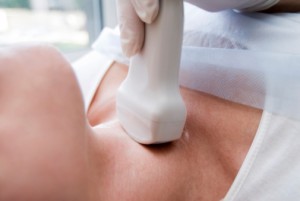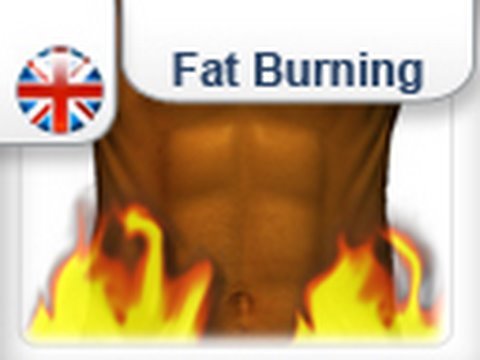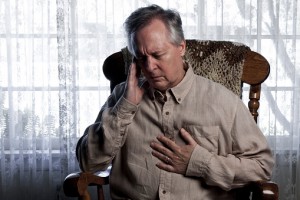4 Things I Learned From Overexercising & Undereating

In my late teens and 20s, I began struggling with body image and disordered eating. I started exercising every day for hours a day and thought that my fitness level made me healthy. But frankly, I was oblivious to all the symptoms that told another story.
I'd lost my menstrual cycle and was dealing with reactive hypoglycemia, which means that shortly after eating I would get a drop in blood sugar that would leave me shaky, sweaty, nauseous and reaching for more food. I also struggled with digestive issues, dry skin, mood issues, and insomnia.
I eventually went to see the doctor about the loss of my menstrual cycle, who took some blood tests and did an ultrasound. I was told at the young age of 26 that I was in early menopause. The doctor also informed me that, "this happens sometimes" and I'd have to take synthetic estrogen for the rest of my life.
I ending up booking an appointment with a naturopath to get a second opinion. This is when I learned about the female athlete triad, adrenal fatigue and hypothalamic amenorrhea.
Hypothalamic amenorrhea is when an established menstrual cycle ceases and is absent for three or more months. Although common in female athletes, hypothalamic amenorrhea is not normal. I had actually known about amenorrhea, as I had been diagnosed with it when I was really struggling with anorexia eight years earlier. At that time, the doctor's only solution was to put me on the birth control pill.
It worked and brought my period back, but it didn't fix the underlying problem. The female athlete triad results from three linked issues. These include menstrual disturbances/amenorrhea, an energy deficit with or without disordered eating, and bone loss/osteoporosis.
I had the amenorrhea and disordered eating, as I'd been struggling with a cycle of restriction and binge eating for years and we just assumed that with my history I had some bone loss as well.
This journey has taught some important lessons that I wish all women knew about overexercising and undereating:
Exercise is a stress on the body, and more isn't always better.
When we exercise for long periods of time (like running for an hour or more) or do high-intensity interval-style workouts multiple times per week, it increases the stress hormone cortisol. If we continue to push long enough and also have other stressors in our lives like digestive issues, lack of sleep, relationship issues, blood sugar imbalances, and work-related stress, we end up being in a chronic sympathetic state also known as the fight or flight response.
This means our bodies are constantly producing cortisol to deal with theses stressors. Over time the body can't keep up and starts to steal from our sex hormones to produce cortisol, which is known as the pregnenolone steal.
The key is finding the right amount of exercise for your body, and don't be afraid to do more gentle types (like walking outside or yoga) when life is stressful.
You need to eat fat, and you need to eat enough food.
Fats, specifically cholesterol and saturated fats, are the precursors for our sex hormones. I was eating a low-fat diet, which made it hard for my body to produce hormones. I was also undereating for my activity level, which puts the body in that sympathetic state I talked about earlier.
When we don't eat enough, our bodies think we're entering a famine. They slow down our metabolism to conserve energy for life-sustaining needs. Reproduction is not important in this state, and amenorrhea often occurs. Nourishing my body with satiating fats and enough food has given me the building blocks and energy needed to bring my hormones back into balance.
Health and fitness are not the same thing.
To get fit like an Olympian or CrossFit athlete, you have to train a lot. And there can be consequences of exercising or training this much, especially if you don't recover like an Olympian. Having proper hormonal balance affects not only your fertility, but it also affects your bone health, cardiovascular health, mood, weight, and digestive function. Being fertile even if you don't want children is the ultimate sign of health and vitality.
As an example, your digestion becomes impaired when you're in a chronic sympathetic state, which leads to nutrient deficiencies like amino acids. Amino acids are found in protein and are the building blocks to important feel-good neurotransmitters like serotonin and GABA. Therefore, digestive issues can lead to depression. This domino effect continues as other body systems become affected from the excess stress, including the thyroid. This can lead to issues with mood and weight and cause constipation, hair loss, and fatigue.
Being skinny doesn't make me feel sexy; having hormones to support my libido does.
When I gained a bit of body fat and curves, worked on supporting adrenal health and balancing my hormones, my sex drive reappeared too. For most of my teenage and young adult years it was MIA. I began to feel like a woman when my hormones returned, and this made me feel sexy. I desired intimacy with my partner, and not being "skinny" made me feel sexy.
When I was "skinny," I couldn't have cared less about intimacy. I also had to learn to love my body as it was and change my idea of what my body was supposed to look like. I focused on self-love and improved my body image, which made me feel radically sexy with my newfound curves.
Truly understanding how our bodies work and focusing on health can help women become empowered in their bodies. When you're empowered, it's easier to make choices that support your health long term.
-
What Hypnosis Can Do For Your Weight Loss Efforts
If you are struggling with your weight, you have probably gone throug
-
How to Lose 20 Pounds in a Week
Losing 1-2 pounds per week is considered safe. And how you lose weight
-
Losing Weight In 2016, But Where Do You Begin
Featured Surveys have identified that most Americans decided to ta
-
Control your portions, control your weight
When it comes to heart health, how much you eat is as importan
-
How You Eat and What You Eat Could be Affecting Weight Loss
Have you been trying to lose weight and not having any luck? There cou
-
The 3 Golden Laws Of Lasting Weight Management
Struggling with weight loss shouldnt be
- DON'T MISS
- Best Weight Loss Tips - Quick Weight Loss Tips For Him
- Type 2 diabetes may be prevented with walking
- Get Slim And Keep The Weight Off With These Tips And Tricks
- Reading Diet Pill Ingredients To Avoid Ephedra
- Some Tips On How To Quit Smoking Without Gaining Weight
- Atkins Diet Plan Are Low Carb Diets Doomed
- Close Kept Secrets To Weight Loss Lesson 18
- HCG Injections – Controversial Weight Loss Method Explained
- How you can Cope with Emotional Eating
- The 3 Tools I Used To Lose 145 Pounds




